HVAC units are essential appliances that work together to bring comfort into your home. A furnace's coils are in proportion to one another's to keep the HVAC systems running smoothly.
What should you do if you have an evaporator coil that is wider or bigger than your furnace unit? We thoroughly research this topic to help you answer this regard. So worry no more and get to know the answer below!
Generally, your best and most practical action is to upgrade your furnace unit to match your evaporator's coil. It's also good to consult your HVAC contractor to get expert advice.
Furthermore, you can also read your user's manual for better knowledge when upgrading your furnace unit. Doing so will help you ensure your HVAC system works efficiently and effectively.
We're not finished yet! There are tons of vital information to learn about this topic. You will know whether you can use an oversized evaporator coil or not. We will also provide the effects of using improper-sized evaporator coils.
So keep on reading! With that said, let's jump right in!
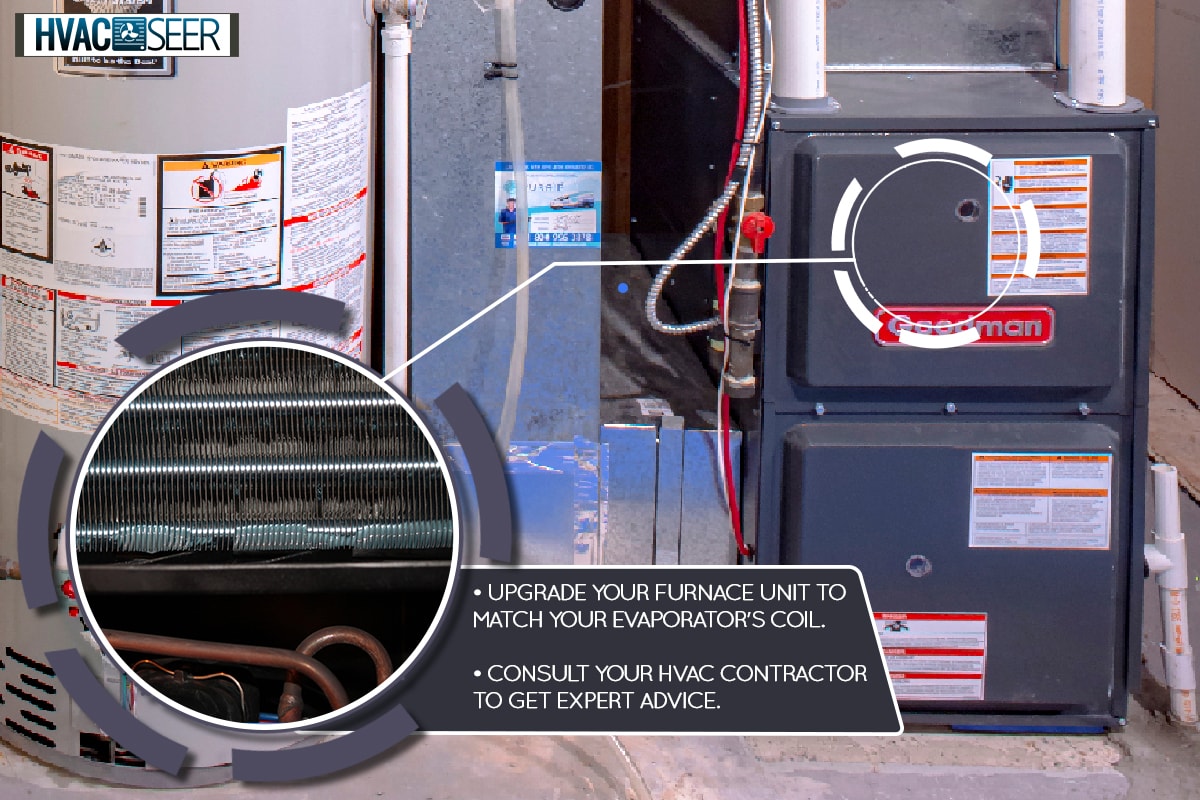
What Is The Difference Between An Evaporator And A Furnace Coils?
The indoor evaporator coil and the Furnace coil or "A Coil" have similar designs. However, an evaporator and furnace coils are entirely different in how they will function.
Its functional distinction is one primary mechanism that transfers heat from one place to another. An evaporator coil works with a refrigerant to cool and extract heat within your home and exhaust it outside.
In contrast, the furnace coil serves as a heat exchanger when it burns gas or electricity to produce heat in the winter. This heat will eventually transport through your air ducts with the help of its blower.
Can You Oversize Your Evaporator Coil?
May it be a too big or too small evaporator coil or either both don't give any beneficial advantages to you. So you should never do it; your home's interior temperature may become unpleasant if your evaporator coil is too large.
Typically, overly sized HVAC systems don't operate long enough for the moisture removal process to occur. Therefore, severely hot areas will face an outcome that causes their indoor thermal level to be stuffy and irritating.
What Effects Will An Oversized Evaporator Coil Have On An HVAC System?
Both coils are made to support one another and function together to take heat and moisture out of indoor air. As you may think, an HVAC system with extra capacity can heat or cool your home more quickly.
However, that efficiency frequently comes with a few problems which may cause your HVAC unit to malfunction prematurely.
Below are some of the effects of using an oversized evaporator coil:
Breach Of Warranty
You should be aware of this because most HVAC company today only covers a coil warranty if proven under the manufacturer's fault. Suppose you change either the condenser or the evaporator coil in mismatch size or even SEER rating.
According to your agreement, you'll risk denying any remaining warranty you may have if you do so. This ensures that users can avoid system failure from varying sizes of coils.
Higher Energy Bills
The smaller coil cannot maintain the capacity of the wider coil when the evaporator and condenser coils are not compatible in size.
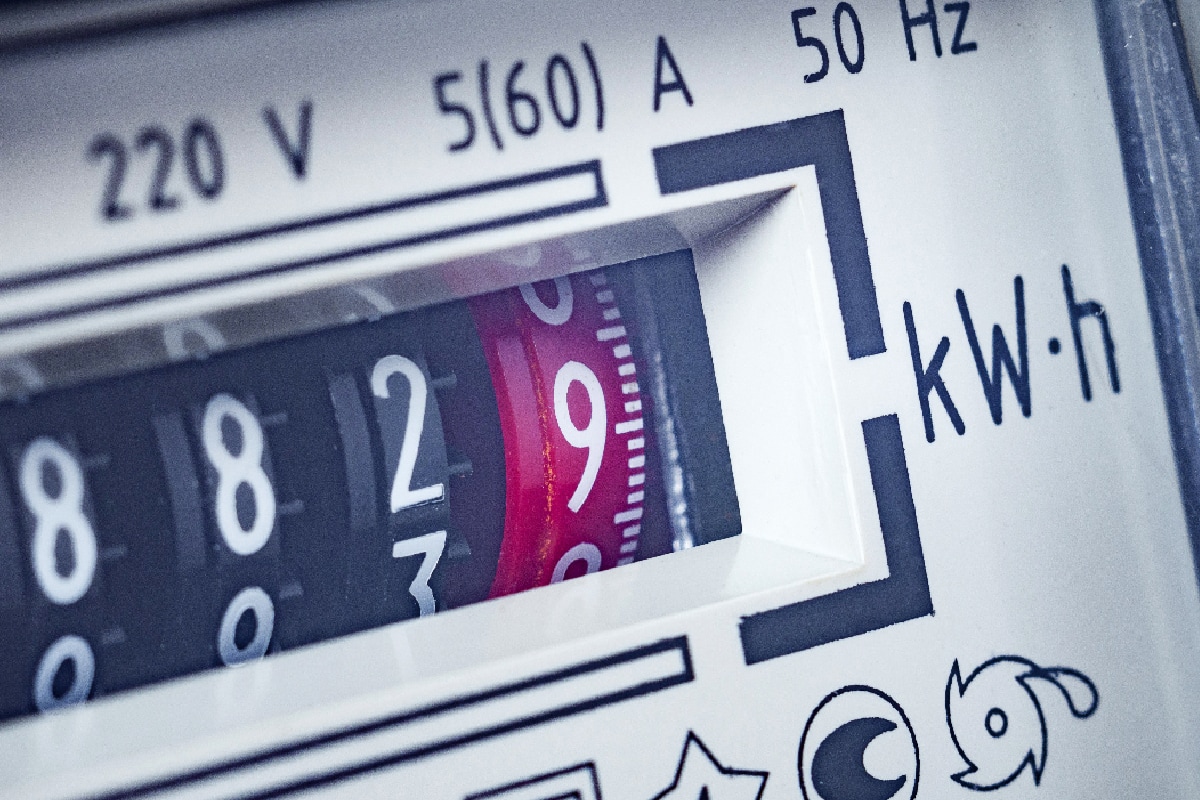
As a result, the whole unit must work harder. In general, longer operating times for air conditioners result in higher energy consumption.
According to experts, proper unit sizing and installation are the keys to achieving 20%-40% energy usage.
A Shorter System Lifespan
If air conditioning coils are not equal in size, the longevity and efficiency of the HVAC system are at stake. Furthermore, the air conditioning system is also under additional strain from uneven coils.
Causing to exert more effort than the other coil will inevitably demand costly repair and early system breakdown.
Poorer Quality Air
If the evaporator and condenser coils are not the same size, your home may have greater humidity and thermal levels.
At some point, the house will benefit from evaporation at the expense of cooling if the system's condenser coil is greater than the evaporator coil.
However, if the condenser coil is shorter than the evaporator coil, almost no moisture from the air will be removed. Thus, you won't be able to feel at ease in your home under either scenario.
Short Cycling
The temperature variations force your HVAC system to switch on and shut down quickly. This process will cause short cycling because larger HVAC units blow cold air instead of cooling the house down slowly.
If short cycling gets out of control, it can cause severe damage to your HVAC system. The blower fan motor, compressor unit, and other HVAC parts may experience early wear and tear due to starting and stopping.
How Do You Measure An Evaporator Coil?
You should know how heating and cooling systems are measured to comprehend what constitutes an excessive HVAC system.
An oversize HVAC system often has a bigger capacity in comparison to the size of your house. It's no secret that your evaporator coil capacity will also describe your air conditioner unit's ability.
This method will work mutually; therefore, for instance, if your house size is around 2,000 square footage. You should have an evaporator coil or air conditioner unit with a capacity between 3-5 tons or 40,000-60,000 BTUs.
How Do I Replace My Evaporator Coils?
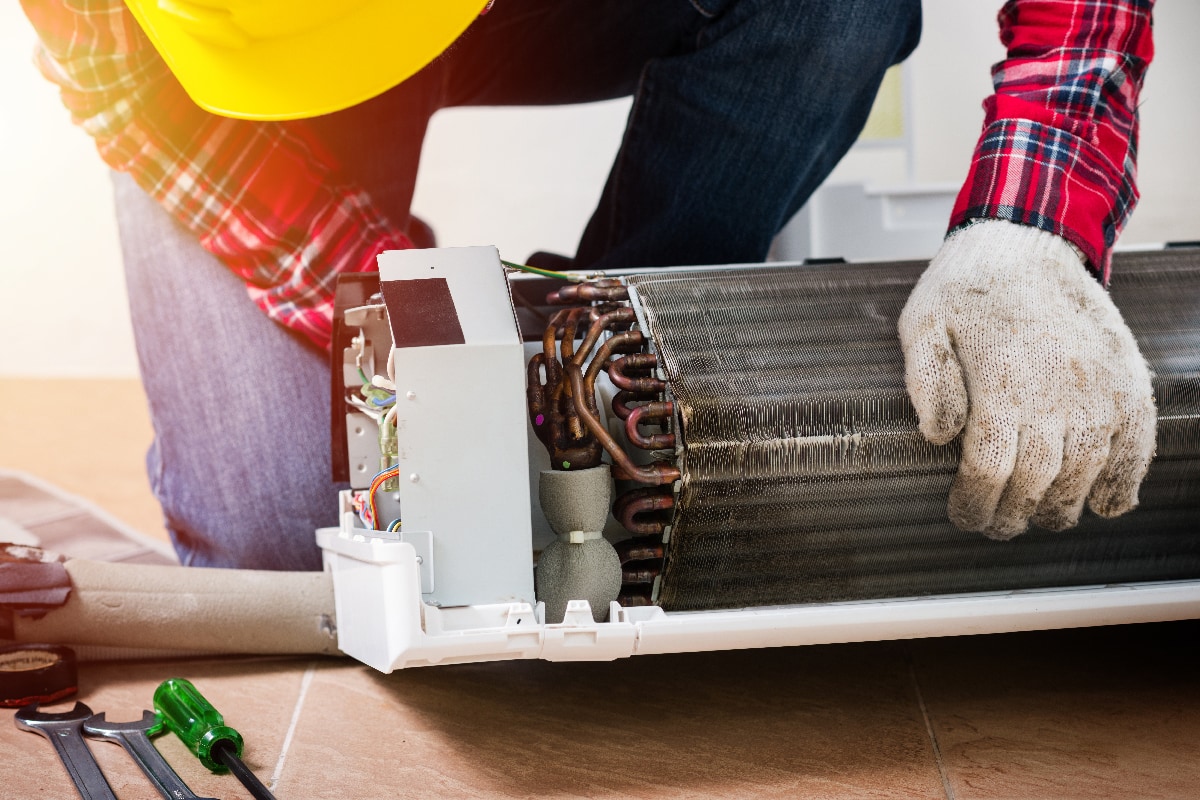
Your evaporator coil will likely need a replacement if your air conditioner suddenly stops delivering cold air. Even so, mind that only an HVAC specialist can only ensure the quality of the job.
After all, you will perform the replacement process fine and should be doing it within 2-3 hours. However, before you work, you must ensure to match the new coils with the old ones.
Kindly follow the easy replacement procedure below:
- Shut OFF the compressor liquid line and set it to a low setting: store the leftover freon.
- You'll need a helping hand on this part; turn OFF its valve when the pressure hits zero.
- Cut a tubing line from your compressor to your AC's evaporator coil.
- Detach your old evaporator coil.
- Securely install the new evaporator coil by gently sliding it.
- Solder the lines back together, then braze them properly.
- Do not reopen the lines yet. Draw a vacuum on the side of the condenser-facing compressor shut-off valve.
- Inspect the coil to see whether a leak is present and shut OFF the vacuum.
- You can now close the valve gauges.
- Open the liquid line and allow it to run for around 10 minutes, then afterward restart the system.
- Avoid purging the system; most people assume you must do this, but you need not.
Keep in mind to research evaporator coil costs before starting this replacement procedure.
How Long Does An Evaporator Last?
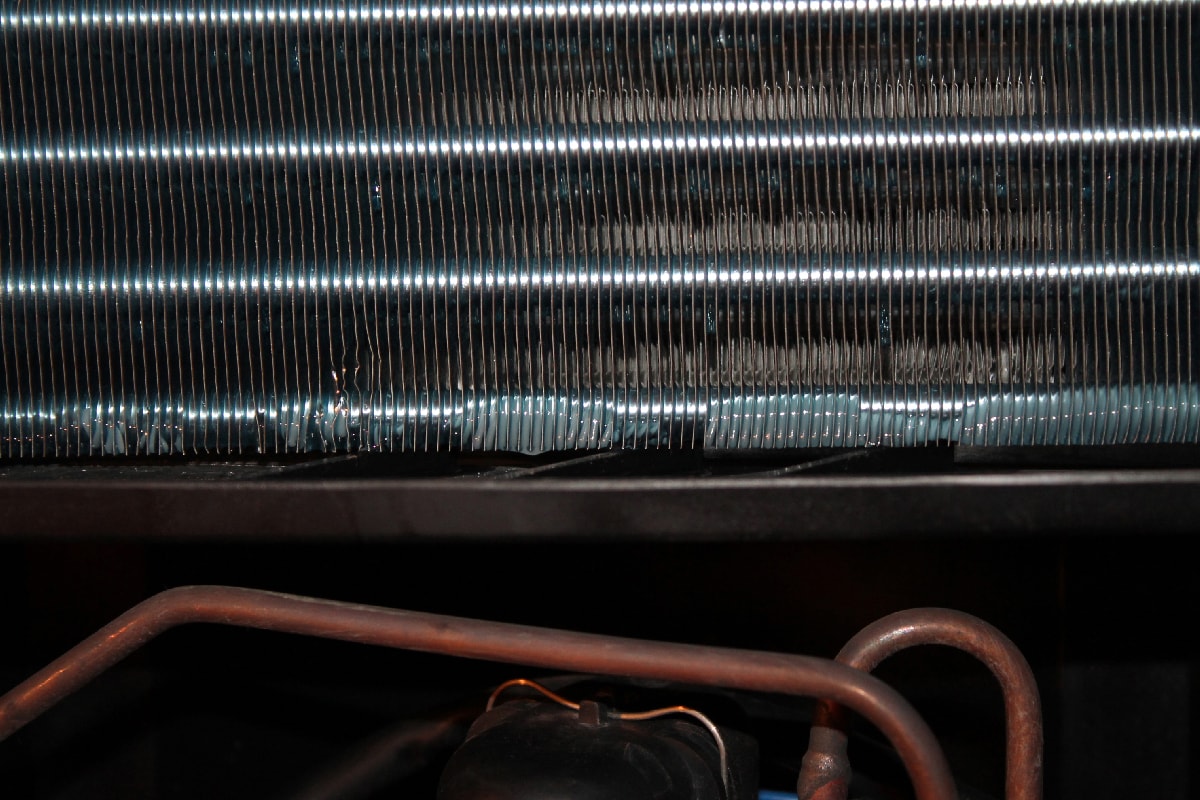
If you maintain your air conditioner properly, whether it's an advanced model or not. Its evaporator coil's lifespan should correspond with that of the entire system.
Routine maintenance and servicing are essential to avoid evaporator problems and other AC concerns.
If you treat your air conditioning system well, it should last you between 10 and 15 years. The evaporator coil is the same.
How Many Types Of Coils Does An AC Unit Use?
Two kinds of coils make up your air conditioner unit: the condenser and evaporator coils. Each performs a crucial job; if there are any issues with either one, your entire system could malfunction.
These coils are an essential component of your air conditioning system. They keep regulating the ideal coolness throughout your house; without these coils, your air conditioner will not function properly.
How Much Does An AC Coil Replacement Cost?
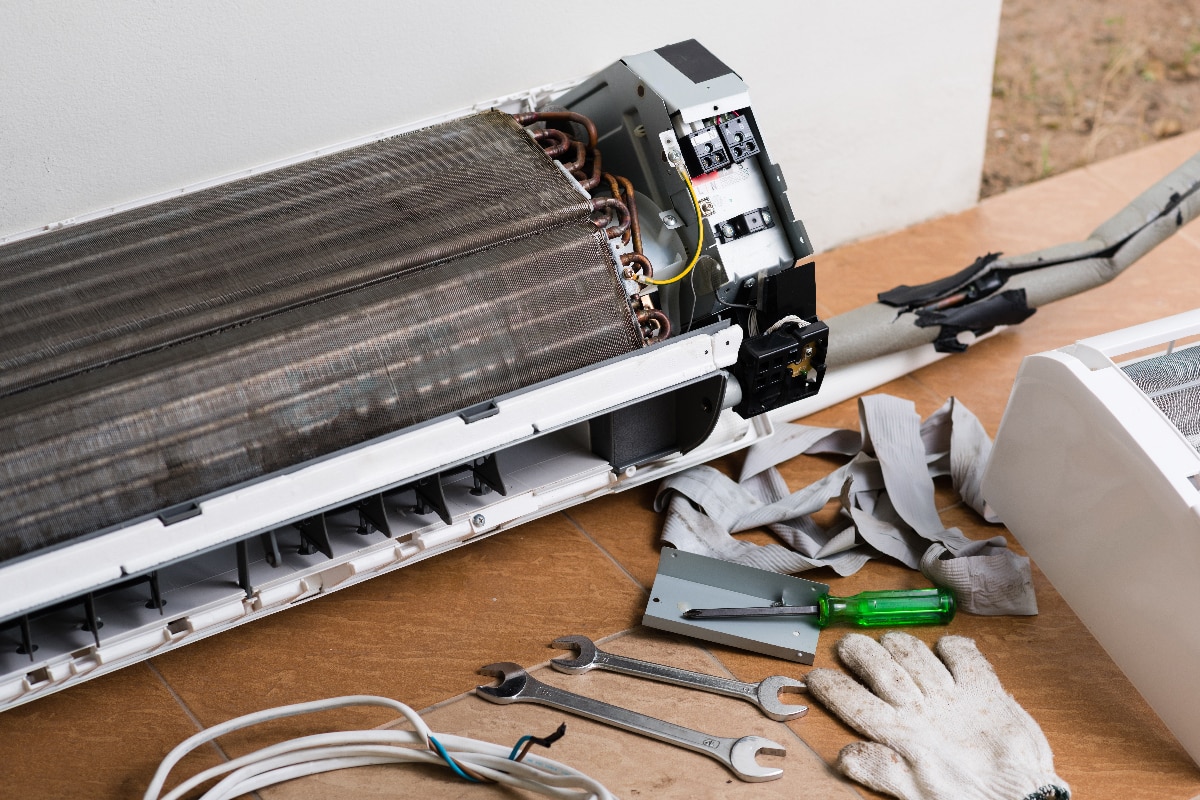
Your air conditioning system is prone to failure even with routine maintenance. So if you experience AC problems, it might be time for a coil replacement.
The average cost to replace an AC evaporator or condenser coil is roughly $1,200. However, the price varies widely depending on the model, location, and other aspects.
The total cost of its labor is between $500 and an additional $1,000 for its part.
In Conclusion
Your evaporator coil is one among the several parts that keep your HVAC system running perfectly. It's always a worthwhile investment to prevent this from breaking than to expend a whole cooling system.
Throughout this article, we've learned the distinctive differences between the evaporator and furnace coils. You also know how to measure your evaporator coil capacity and how you replace it.
Nothing is so comforting than a house with a well-functioning HVAC system. It's our pleasure to provide you with all this knowledge, so please use it to your benefit.
Made it to the end? Check out these helpful related posts!
